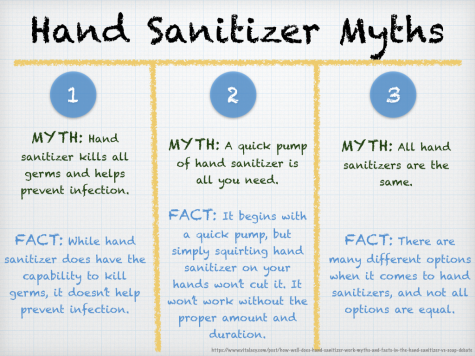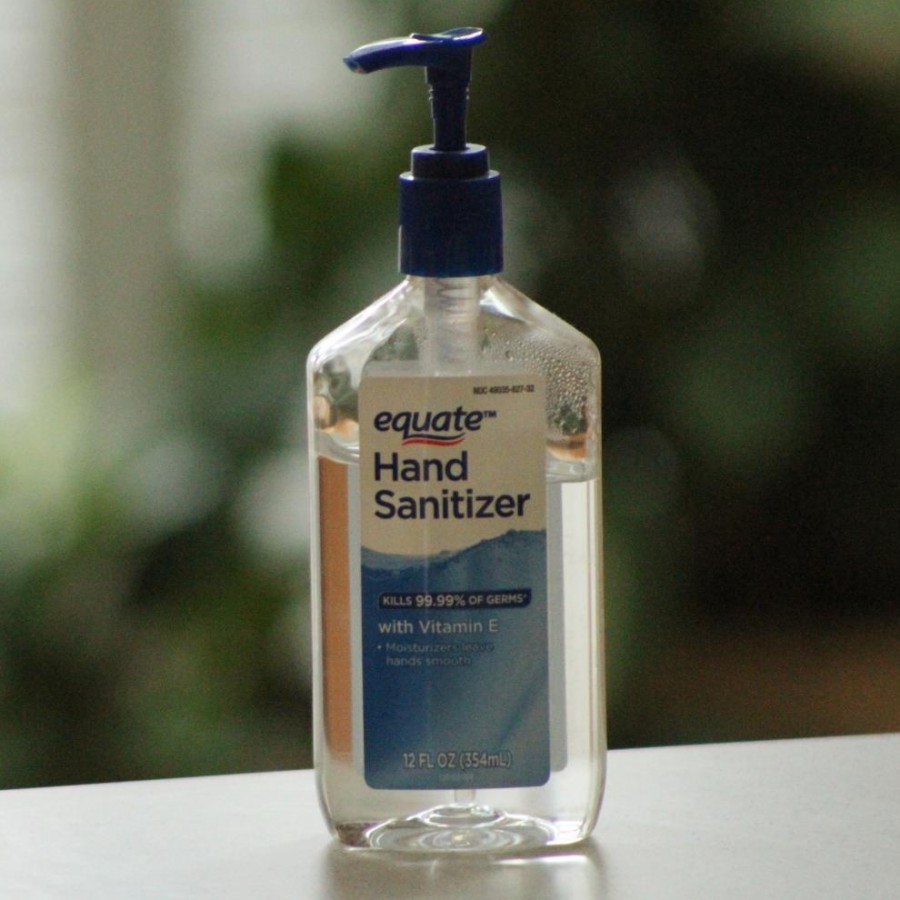COVID-19 has heightened the awareness of many individuals of all ages to the amount of germs being spread at the workplace, school and around the city.
Hand sanitizer is one of the most commonly used disinfectants. However there is controversy behind the effectiveness of it.
Rush University Medical Center discussed the potential harmfulness of hand sanitizers.
 “[Hand sanitizer] could theoretically lead to antibacterial resistance. That’s the reason most often used to argue against using hand sanitizers,” Rush explained. However, the article goes on to state that this has yet to be proven, making washing hands warm water and soap the best option.
“[Hand sanitizer] could theoretically lead to antibacterial resistance. That’s the reason most often used to argue against using hand sanitizers,” Rush explained. However, the article goes on to state that this has yet to be proven, making washing hands warm water and soap the best option.
Substitute teacher Sylvia Zuiderveen shared the role she believes hand sanitizer plays at school. “My personal preference would be to see students wash their hands more, but given that this is a measure taken for safety in the unique and extreme circumstance of COVID, I am okay with the sanitizer being used,” Zuiderveen explained.
Teachers and students have grown accustomed to using hand sanitizer when entering classrooms at PV, but few have questioned how much it is really doing to prevent the spread of COVID-19.
Senior Dominic Banowetz shared his thoughts on the utilization of hand sanitizer at school. “I think hand sanitizer is a good thing, but it doesn’t replace washing your hands. People still need to wash their hands, even if hand sanitizer is available,” Banowetz explained. Many students avoid washing their hands, relying solely on the hand sanitizer distributed by teachers.
Hand sanitizer is often used in the fight against COVID-19, but very rarely is its effectiveness questioned. The traditional method of washing one’s hands with soap and warm water seems to be the most effective option, but in times where this is unavailable, hand sanitizer plays an important role in staying safe









